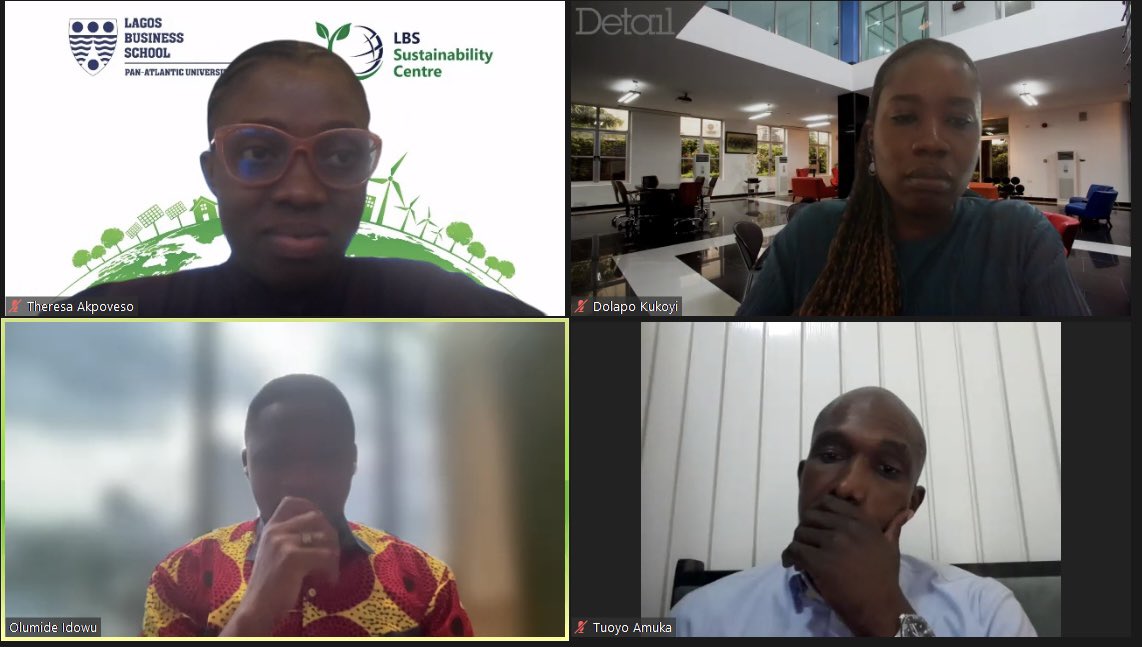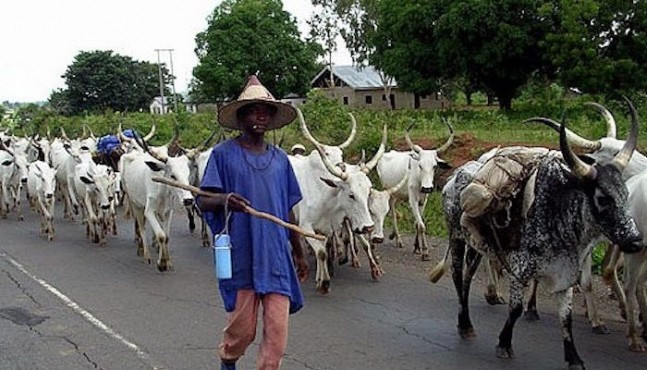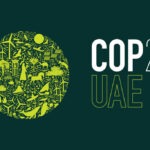With the growing threat of climate change globally, experts have called for better collaboration between private sector players and media organisations to step up advocacy about the impact, especially on food supply and nutritional implications.
Climate change has over time manifested in various forms such as extreme weather conditions – high or very low temperature, drought, flooding, desertification, etc., which affect the environment, health of people, and agricultural productivity among others.
Join our WhatsApp ChannelSpeaking at a webinar organised by the Lagos Business School Sustainability Centre in collaboration with Nestle Nigeria on Tuesday, 4th July 2023, an environment activist, Olumide Emmanuel Idowu, said media platforms have a pivotal role to play in climate change impact awareness.
READ ALSO: HOMEF At 10: Climate Change, Environmental Justice In Africa Dominate Discourse
The theme of the webinar was Climate Change Implications for Food and Nutrition Outcomes: The Role of the Media.”
Olumide, who is the Executive Director, International Climate Change Development Initiative Africa, said that having food security is necessary to ensure that the health and productivity of individuals are not affected.
He pointed out that climate change affects agricultural output, and the nutritional quality of food and ultimately disrupts the food supply chain which leads to scarcity and high prices.
“Climate change has a significant impact on our food systems and, as a result, global food production. It affects the yield, biomass, food composition, and nutritional quality of crops, which directly affects the nutrition and health of people worldwide.”
Citing a Food and Agricultural Organisation’s 2020 publication, he added: “Climate change has the potential to greatly disturb the delicate balance of our food supply chains and transportation Systems. This disruption can lead to unpredictable fluctuations in food prices, putting a strain on individuals and communities. Moreover, it can jeopardise the security and availability of nutritious food, ultimately impacting the well-being and health of people around the world.”
“Guaranteeing food security not only implies availability but safety by employing regulations that take into consideration different factors in the value chain and supply chain,” Idowu further stressed.
In Nigeria, according to the National Emergency Management Agency, widespread flooding in the 2022 rainy season damaged more than 676,000 hectares of farmlands, which diminished harvests and increased the risk of food insecurity for families across the country. Flooding is one of the effects of climate change and variability impacting Nigeria. It is also said that more extreme weather patterns affecting food security are anticipated in the future.
Given the glooming picture of this global environmental problem, Idowu, who is also called ‘Mr Climate’, advised that media workers should have a deeper knowledge of climate change issues and be able to tell the story for the benefit of the masses affected by the challenge.
“The media has a role to play in putting out word and content that enlightens the public on the effects of climate change on food value chains and nutrition,” Idowu stated.
Idowu, who noted that there are a lot of policy papers on climate change but less advocacy, urged journalists to tell stories about climate change from a local perspective to engage people in local communities to understand what it is all about, how it affects them and what they need to do on their part to keep the environment safe.
Also, speaking during a panel discussion in the webinar, Dr Dolapo Kukoyi, Thematic Lead, Climate Change, Nigerian Economic Summit Group (NESG), called on both government and private sector managers to spearhead the creation and implementation of proactive policies that address the effects of climate change, especially on food security and nutrition.
“Policy and intervention play a key role in climate change solutions as it affects food security and nutrition. Our policies should be agile and proactive and not reactive. Our policies must identify the challenges, must be forward thinking and implementable,” Kukoyi stated.
She urged journalists to deploy their skills in curating special stories that give deep insight to the masses about climate change, adding that such equally draw the attention of investors and policy creators to take necessary actions towards tackling the menace.
The environment expert further stressed the need for private sector-led organisations to partner with media to drive a better narrative about climate change, especially in communities in developing countries, which are economically disadvantaged and appear to be severely affected by the escalating risks related to the environmental scourge.
“The Private Sector and the media must collaborate to move the needle in climate change reporting. Broader partnerships are with NGOs and Development Institutions who have done a good job in pushing the climate change narrative” said Kukoyi.
On his part, Tuoyo Amouka, Chief Growth Officer and Special Project Lead Vanguard, urged media professionals focused on climate change reporting to adopt innovative ways of telling stories about the subject.
Amouka, who moderated the panel session, said stories about climate change need to be factual and solution-based.
“We need to do a lot of advocacy and this is where the media comes in to help in pushing advocacy to forge policies that will help us rein in climate change effects on food security and nutrition,” Amouka said.
“Media content must be factual, engaging and must reach as many people as possible per time providing recommendations, solutions, and actions that should be taken,” he added.
Victor Ezeja is a passionate journalist with seven years of experience writing on economy, politics and energy. He holds a Master's degree in Mass Communication.



















Follow Us